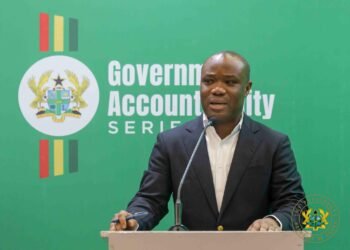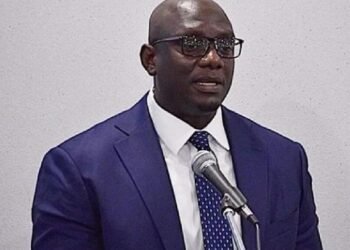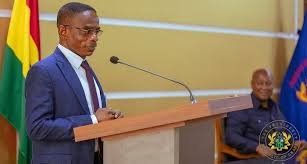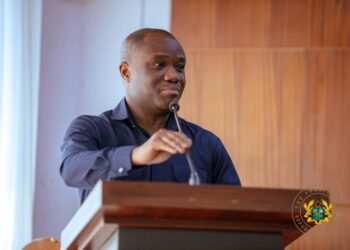In a passionate appeal to Ghanaians, Dr. Samuel Awuku, a key figure in Ghana’s ongoing education reforms, has urged citizens to put aside political affiliations and support the national effort to reshape the country’s education system.
Speaking on the National Education Forum, he emphasized the need for collective action to ensure a better future for Ghanaian students.
“For once, I would beg citizens that there’s a point in time in our history that we can all say that this is the right time for us to do things like this and forget about any political ideology that is destroying us”
Dr. Samuel Awuku, Education and Development Consultant
He expressed concerns over the deep politicization of discussions surrounding education, arguing that such partisanship often derails meaningful progress.
According to him, every attempt to improve the sector is frequently viewed through a political lens rather than a national development perspective.
“I’m a technical person. I have had the opportunity to work outside this continent. In 2013, I was called to come and support a particular project, and I’ve been doing that since. I remain a technical person.
“And we all have to bear in mind that there’s a point in time that we all have to roll up our sleeves and say, ‘Ghana First,’ and make sure that what is needed to be done for Ghana to move forward, we do it.”
Dr. Samuel Awuku, Education and Development Consultant
Dr. Awuku emphasized that the committee overseeing the education reforms is composed of individuals dedicated solely to national progress, devoid of any political agenda.
He recounted an incident in 2017 when he was invited to assist in reforming the British curriculum. Some individuals, he revealed, questioned his involvement based on political associations.
However, then-Education Minister Dr. Matthew Opoku Prempeh dismissed such concerns, stating that students in schools do not wear political jerseys but are simply Ghanaian children in need of quality education.
Defining ‘Quality’ in Education
Beyond political neutrality, Dr. Awuku highlighted the real challenge at the heart of education reforms; defining what constitutes ‘quality’ education in Ghana.
“You know, before we started this work, we looked at the education sector plan. We did some desk reviews and engaged key players. We looked at the NDC manifesto because of the social contract, and based on that, we came out with five pillars”
Dr. Samuel Awuku, Education and Development Consultant
These five pillars – infrastructure, education quality provision, education finance, regulatory systems and governance, and research-based decision making, form the foundation of the ongoing reforms.
While Free SHS has been a focal point of public discourse, Dr. Awuku stressed that it is just one part of a broader conversation on education autonomy at various levels.
“People are concerned about the quality of education that young people are receiving, and we are now exploring what we actually mean by quality,” he said. “Does it mean just passing WASSCE? We need to define it together so that wherever you live or are born, you receive the same kind of education.”
This he described as “the challenge” that President Mahama has given the National Education Forum committee.

Lessons from 2017
For Dr. Peter Anti, another key voice in the forum, the absence of this national conversation in 2017 led to challenges with the Free SHS policy and curriculum reforms at the basic level.
He argued that a more inclusive approach back then would have mitigated many of the current struggles facing Ghana’s education system.
“If we had had this conversation in 2017, so many of the challenges that we have experienced with Free SHS and some of the curriculum reviews that we did at the basic level, we wouldn’t have experienced them”
Dr. Peter Anti, Education Economist and Researcher
Dr. Anti stressed that education is too important to be left solely to politicians or a select group of decision-makers.
Every household in Ghana is affected by the education system, and as such, a broad and inclusive consultation process is necessary.
“You cannot just box in three, four people in a room or one person who is the minister or the president to just give a direction and expect everybody to follow suit. If you are not careful with educational policies, you can destroy a generation in just a blink of an eye”
Dr. Peter Anti, Education Economist and Researcher
Financing Education for Sustainability
Education financing remains a major hurdle in Ghana’s reform agenda. Dr. Anti outlined three critical measures to ensure sustainable funding.
He called for “expanding the scope of funding sources” and for efficiency measures to prevent financial leakages to ensure that allocated funds are used strictly for education.
He also proposed that “equity financing” be employed to ensure resources are distributed in a way that bridges the gap between well-endowed schools and underprivileged institutions rather than exacerbating existing inequalities.
Under “innovative funding models”, he advocated that Ghana must explore modern financing mechanisms, including public-private partnerships and alternative revenue streams, to support the education sector sustainably.
“We presented that these models should be tried, and I hope and pray that whatever it is that they are harvesting, there will be something that would transform our education”
Dr. Peter Anti, Education Economist and Researcher
As Ghana moves forward with its education reforms, the message on the National Education Forum is that this is a collective effort that transcends political boundaries.
Dr. Awuku’s plea for national unity in this endeavor underscores the urgency of putting aside partisan interests in favor of long-term national development.
With stakeholders from different backgrounds contributing their expertise, there is hope that Ghana’s education system can be restructured successfully.
This will provide every child with the same quality of education, regardless of location or socioeconomic status.
READ MORE: Inefficiencies in Ghana’s Public Health System Compromising Patient Care























